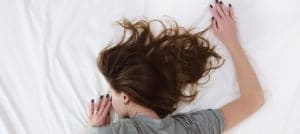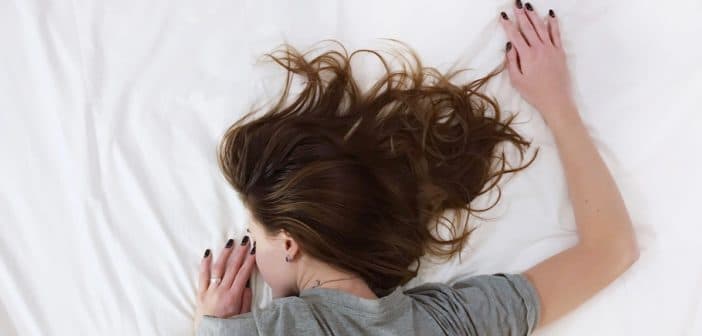 Our guest blogger, Sara Westgreens is a researcher for the sleep science hub Tuck.com. She sleeps on a king size bed in Texas, where she defends her territory against cats all night. A mother of three, she enjoys board games, and getting as much sleep as she can get her hands on.
Our guest blogger, Sara Westgreens is a researcher for the sleep science hub Tuck.com. She sleeps on a king size bed in Texas, where she defends her territory against cats all night. A mother of three, she enjoys board games, and getting as much sleep as she can get her hands on.
Addiction and sleep go hand in hand. In fact, sleep disorders are common among people with addiction. People with addiction are five to 10 times more likely to experience sleep disorders. And in adolescents, poor sleep is a risk factor for use of cigarettes and marijuana.
Addiction can occur due to sleep issues, and addiction can cause sleep issues—and sleep problems can continue even in recovery. But both sleep and addiction are treatable.
How Sleep Issues Fuel Addiction
Some people who struggle with sleep use substances to help them treat insomnia and other difficulties. What was once a small nightcap at night turns into a serious drinking problem, or a few pills or other drugs to get to sleep quickly creep into daytime use—or users simply can’t sleep without substances. It’s easy for things to get out of hand and accidentally become addicted trying to self medicate sleep issues.
Sleep disorders associated with addiction include insomnia, hypersomnia, parasomnias, sleep apnea, and restless legs syndrome.
Addiction Can Cause Sleep Problems
With long term substance abuse typically comes sleep problems. In long term users, the brain changes, disrupting sleep quality and sleep patterns. People with addiction may not be able to sleep without substances. And in recovery, sleep problems continue long after the initial detox.
Alcohol is a depressant, and it can help you fall asleep. Up to 30 percent of Americans with insomnia use alcohol to help fall asleep. Even when people who drink before bed fall asleep faster, their sleep is more shallow, as they spend less time in REM sleep, which is the deep sleep we need for restorative sleep and processing of memory and learning. Similarly, marijuana can be used as a sleep aid—only to decrease REM sleep.
Stimulants including hallucinogens, MDMA, amphetamines, and cocaine are easy to understand as problematic for sleep. These drugs are energizing and make it difficult to fall asleep. They can cause sleep deprivation, reducing REM sleep.
Opioids may be used to deal with pain that makes it difficult to sleep, but it comes at a cost. REM sleep is severely reduced, so sleep is lighter and less restorative. Poor sleep can reduce tolerance for pain, leading users to turn to more opiates during the day.
Sleep medications are designed to help sleep, and may be prescribed by a doctor. But sleep medications are not intended for long term use and people who take them regularly may become dependent on them. People who use sleep medications may turn to sleep medication first before trying better sleep habits or natural sleep aids.
During addiction recovery, patients may experience insomnia. And, other symptoms including nausea, fever, vomiting, and headaches may make it difficult to sleep well. Insomnia is a major predictor of relapse, so it’s important to treat insomnia during and after recovery.
Improving Sleep During Recovery
During addiction recovery, sleep may be difficult, but there are strategies for improvement.
Patients should get support, and consider cognitive behavioral therapy. Good sleep hygiene, including keeping a regular sleep schedule and following a consistent bedtime routine, can be helpful. And it’s important to avoid sleep pitfalls including caffeine late in the day, exercising late at night, and late night screen time. Light therapy and a healthy lifestyle including exercise and good food choices can support both sleep and addiction recovery while improving overall health.
Addiction and sleep difficulties are problems that can be caused by and fuel each other. But both are treatable. Addiction recovery and improving sleep can help patients lead a healthier lifestyle.
Sponsored DISCLAIMER: This is a paid advertisement for California Behavioral Health, LLC, a CA licensed substance abuse treatment provider and not a service provided by The Fix. Calls to this number are answered by CBH, free and without obligation to the consumer. No one who answers the call receives a fee based upon the consumer’s choice to enter treatment. For additional info on other treatment providers and options visit www.samhsa.gov.




